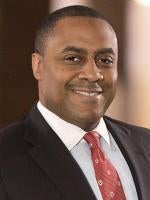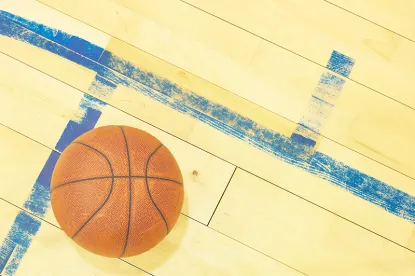Before John Calipari, Rick Pitino and other presently successful college basketball coaches, there was the “Shark”. Jerry “Tark the Shark” Tarkanian held an impressive run as the Men’s Basketball Coach at the University of Nevada at Las Vegas (UNLV) in the 80s and early 90s. However, in the midst of his success, which included a national championship in 1990, he constantly was in the eye of NCAA investigations. Adverse findings of the NCAA and UNLV’s subsequent implementation of recommended sanctions on Tarkanian resulted in a historic legal battle. The end result was a ruling with implications for every NCAA investigation involving disciplinary or adverse actions with athletics personnel.
Today marks 25 years since Justice John Paul Stevens led a 5-4 Supreme Court ruling holding that the NCAA was not a state actor as a result of a state university implementing disciplinary measures at its recommendation. In the case, NCAA v. Tarkanian, the NCAA’s Committee on Infractions found 38 rules violations by UNLV’s personnel, 10 of which involved Tarkanian. The NCAA placed UNLV’s basketball program on probation for 2 years and issued a “show cause” notice requiring the University to present reason as to why additional penalties should not be imposed if it failed to sever its relationship with Tarkanian during the probationary period.
At the time of the litigation, Tarkanian held a tenured faculty position at UNLV and therefore owned a property right which could be deprived by a state actor – the University – under the proposed sanction. Despite this background and UNLV’s disagreement with the findings of the Committee on Infractions, UNLV notified Tarkanian of its intent to terminate his relationship with the athletics function during the probationary period. In a series of legal proceedings which succeeded at the state level, Tarkanian argued the NCAA was a state actor as UNLV had for practical purposes delegated its oversight function and authority to the NCAA.
As it did in 1988, a current review of the case raises close issues of acting under state authority and required due process. A state university is unquestionably a state actor and tenure is a recognized property right, which would ordinarily invoke due process concerns. However, the Supreme Court maintained the NCAA was a private actor in part because (1) UNLV had not delegated its authority to the NCAA, (2) the NCAA was acting on behalf of its collective membership, and thus was adverse to and not in partnership with UNLV, (3) in theory, UNLV could have rejected the NCAA’s recommendation and even renounced its membership in the NCAA as a whole, and (4) the NCAA enjoyed no governmental powers to conduct its investigation, such as ability to subpoena witnesses or impose contempt sanctions.
Please excuse the snickering on that last point from Coral Gables, Florida. As was revealed earlier this year, the NCAA acted similar to an entity with subpoena power in attempting to obtain testimony from a private litigation for use in its investigation of the University of Miami. The improper actions of the NCAA enforcement staff were highly criticized, leading to the ouster of its V.P. of Enforcementand the NCAA subsequently giving a great amount of deference to the self-imposed actions of the U to close its investigation.
The Miami investigation and outcry following the Penn State consent decree highlight a real concern for all Division I athletic programs after the Tarkanian decision – if the NCAA is not bound to provide due process, what protections are there for an institution, its leadership and athletics personnel under an investigation? The answer is a complicated one that often requires legal counsel to assess where the NCAA has exceeded the scope of its authority and failed to follow the rules established for its member institutions. For example, universities need to be aware of how the NCAA’s relatively light slap on the wrist from the Johnny Manziel investigation has importance, but does not set precedential value, for activities of other student-athletes.
The iconic image of Tarkanian on the sidelines was his plain white towel, often draped over his shoulder or held his mouth in a tense moment of a contest. The tension off the court however, will be the concern of presidents and athletic directors of many institutions with the NCAA serving notice of its intent to make athletics personnel more culpable for future violations. A good New Year’s resolution would be to have a compliance audit of the athletics function with legal counsel to insure that an ounce of prevention is worth a pound of cure.




 />i
/>i

